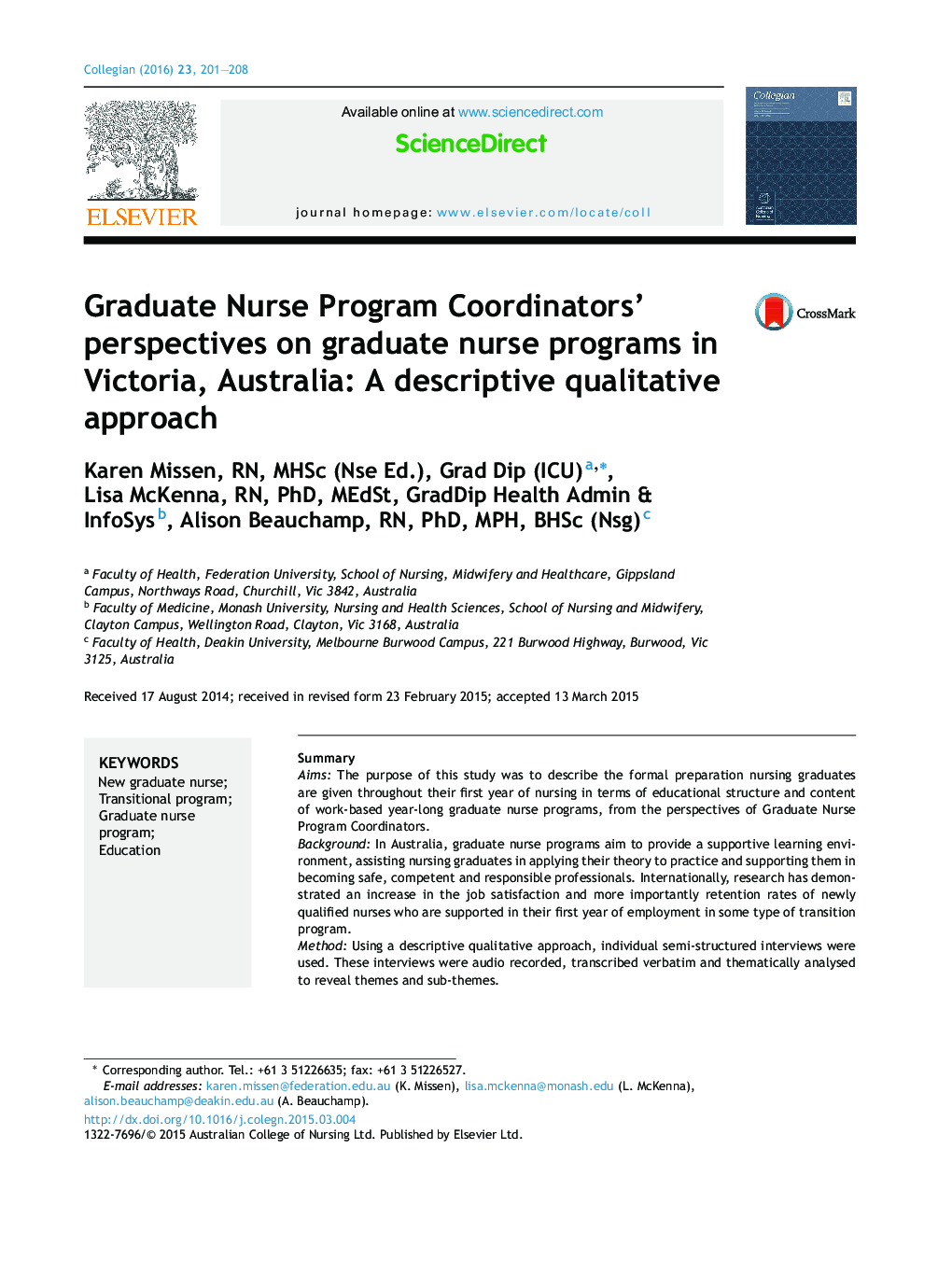| Article ID | Journal | Published Year | Pages | File Type |
|---|---|---|---|---|
| 2646074 | Collegian | 2016 | 8 Pages |
SummaryAimsThe purpose of this study was to describe the formal preparation nursing graduates are given throughout their first year of nursing in terms of educational structure and content of work-based year-long graduate nurse programs, from the perspectives of Graduate Nurse Program Coordinators.BackgroundIn Australia, graduate nurse programs aim to provide a supportive learning environment, assisting nursing graduates in applying their theory to practice and supporting them in becoming safe, competent and responsible professionals. Internationally, research has demonstrated an increase in the job satisfaction and more importantly retention rates of newly qualified nurses who are supported in their first year of employment in some type of transition program.MethodUsing a descriptive qualitative approach, individual semi-structured interviews were used. These interviews were audio recorded, transcribed verbatim and thematically analysed to reveal themes and sub-themes.ResultsThe interviews provided an insight into the various aspects of preparation that nursing graduates are given in their first year of practice with the main theme to emerge from analysis, nature of transition programs. The three subthemes associated with nature of transition programs consisted of composition of rotations and study days and supernumerary strategies. Findings indicate variation in pedagogical models underpinning graduate nurse programs across Victoria. Clinical rotations varied between three to twelve months, the number of study days offered were between four and thirteen days and there was variation in supernumerary time and strategies within the programs investigated.
